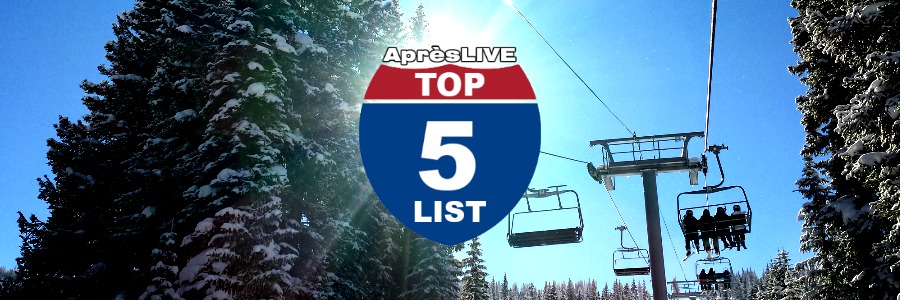TOP 5 LIST
MARCH 2017

Top 5 Reasons your resort community venues are under performing
Congratulations, on recognizing the
impact arts and entertainment, especially concerts, is having on
mountain resort communities. This is no accident… not everyone
follows these stories, but if you look you'll find articles
about a professional hockey team in danger of losing their lease
with the arena because the revenues from concerts are greater
then the revenue generated by professional hockey… Let that sink
in for a minute.
Although, the music side of the music
business may be in shambles the concert business appears to be
going strong! No wonder more and more resort communities are
wise to look to bigger and better music events that bring
audiences to town complimenting and growing their business
season to season. However, investing millions of dollars in the
construction of an Amphitheater is one thing… enticing,
establishing and retaining events that move the economic needle
is something else.
Top 5 Reasons why your resort venues are under performing:
1. too small - open space is great in
the mountains, but no perimeter means no ticket sales and ticket
sales are the lifeblood of the music industry in the digital age.
Big free outdoor shows are few and far between leaving most
communities with a 400 to 500 seat venue at best, and that won't
cut it for many popular and touring artists. Free music is a
quaint idea from the analog age, but now everyone knows free
shows sell beer and sponsorships making them a money grab by
venues and promoters.
2. too expensive - its no secret
mountain venues are significantly fewer and offer smaller
capacities. It's also no secret everything is more expensive,
and that goes for putting on concerts and special events too.
Unfortunately, when communities lack understanding of
entertainment and special event economics they often assume
events and producers should pay too much in the mountains.
Simply having an event doesn't mean it will be successful,
especially when every local business is only interested in
what's in it for them, with many under the impression their
profits should come from the event promoters or sponsors before
the event even happens. This attitude results in many bands,
festivals and other special events passing on performing at mountain venues
because charging outrageous ticket prices usually alienates fans
and means performing in half empty rooms.
3. too many other events - wine
tastings, weddings, school plays and more local community events
are all great things, but in some instances these events are
better suited for smaller event or meeting space more in line
with the size of audience and economic impact…many shows that
your resort community could get simply don’t have a viable venue to
perform
4. too many players - Does a professional football stadium consult the secretaries, concessions and parking lot attendants when scheduling pro and college sporting events? When they book popular concert tours and special events? of course not. These venues, especially stadiums and arenas are multi-use, and need revenue from renting the facilities to other events. In many instances these venues have far more concerts and other events then home games for the resident pro sports team. Plus, larger professional venues includng stadiums, areanas and ampitheaters recognize they have a responsibility to bring a wide spectrum of events and music attracting larger and more diverse audiences and not just the same shows and events over and over and over again... most venues want to make money and this approach only limits the options for audiences and opportunities for the venue to maximize revenues.
5. too many politics - simply because the community has a multi-million dollar venue does not mean they have they will or abilities to work with producers, event planners and promoters to bring revenue driving events to the community. From town councils and special event commissions who don't understand the nature of activating and sustaining destination events and make it impossible to overcome the added costs and obstacles presented by local regulations. Combine that with limited venue availabilities, competition between the same small local promoters, bands and events over and over and then the venues and individuals squeaky wheels with an anti-music agenda of some kind (you the type...my music is good, but your music is bad). All these stiffle opportunities and balance among different types and styles of events and more diverse local and visitor audiences to drive revenue.